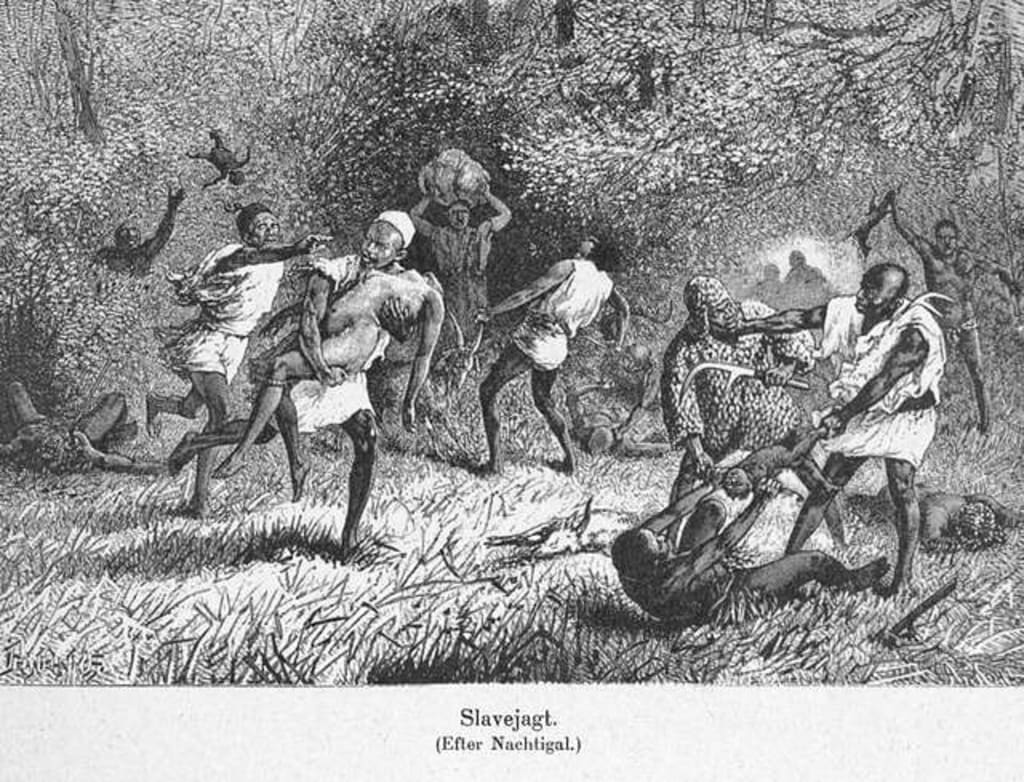Colonization and the Aftermath
Colonization from the view of non-American works of literature

Colonization is destructive and ignorant to the preexisting societies that is ruined for money and land. Colonization is rooted in racism, capitalism, and supremacy. Colonization affects poor and indigenous countries. Candide by Voltaire, Clear Light of Day by Anita Desai, and Things Fall Apart by Chinua Achebe all paint pictures of the destruction of colonization from different perspectives. Candide has a colonialist perspective with Candide traveling all over the world, causing destruction with an optimistic attitude. Anita Desai sheds a light by telling the story of India after English colonialism and how it affected their society and schools. Achebe tells the story of a man as his village is invaded by white evangelicals on behalf of the colonizers.
Voltaire’s Candide criticizes white male governments and their views on women, colonialism, and religion. While Voltaire is also a white man, he criticized the world as a whole and how his people acted in it. Candide is a satire of white men, but because Candide always had good intentions and his wrong doings are never seen as severe as they actually are. Candide is an optimist rich man with no real grasp of how the world works. He keeps traveling the world with different characters that give him different perspectives of how the world affects them. Candide thinks himself a noble and right man. When he and his valet, Cacambo, find themselves in Paraguay, they think they know better than the indigenous peoples that they find there. In Paraguay they encounter two women running away from monkeys. Candide hypes himself up, “Candide was moved with pity; he had learned to fire a gun in the Bulgarian service, and he was so clever at it, that he could hit a filbert in a hedge without touching a leaf of the tree. He took up his double-barrelled Spanish fusil, let it off, and killed the two monkeys” (31, Voltaire). Candide sees himself as the white savior to these indigenous women, not considering that their people have been there for centuries and could handle themselves at that point. He obviously as the educated and civilized white man he is must do something to protect these women! When the women begin to cry over the monkeys that are shot, Cacambo explains the anguish the women are displaying. "Master, you have done a fine thing now; you have slain the sweethearts of those two young ladies." Cacambo praises Candide still, while implying that these women have romantic relations with the monkeys.
Candide is a standard for colonialism. He comes into the country as a white male, thinking these people are uncivilized and need to conform, and somehow ends up killing in the name of their heroism and country. They always believe they are in the right take over these countries and that they obviously need help and to give up their resources to better the world or, more specifically, Britain. While Candide is a part of colonialism as it is happening, the outcome is known because of history. Paraguay and conquered countries will live in economic ruin because of all the resources that are taken from them. Candide as a comedy tells the white men it catered to that these conquered countries are savage because their women loved monkeys, but jabs at the fact that Candide is so happy to help these women without looking deeper into the issue. Candide’s blind optimism in the situation shows that France and other countries conquer without looking deeper into how colonialism will affect these countries in the long run. The only reason is for resources and land, as Candide’s only reason is to be a white savior. It has been embedded into white minds that they are doing a service by decimating smaller countries for land because it is their duty for their nation.
Anita Desai wrote a beautiful novel about a family living in India after the British left. The British left lasting effects on India and its citizens. The setting of the novel is during the Partition that separated India and Pakistan on behalf of the British. The British took over India and had British colonies, set up schools, and eventually took over as Britain did to multiple countries. This is a main focus of the novel as Raja befriends his Muslim neighbors and later marries their daughter. Raja even goes to England to study. India and Pakistan used to be a whole country but after the British took over, they decided that they could make all the decisions even though it is not their land to make decisions for. They made the decision to split Pakistan and India into two countries so that the Hindus would stay in India and the Muslims would stay in Pakistan.
In a conversation with Bakul, Bim, and Tara, the current political climate is brought up. Bakul is an ambassador for India and knows a lot of how the government is functioning at the time. Bakul tries to reassure his wife, Tara’s family: ‘But you needn’t worry. All steps are being taken to carry out partition smoothly, we hope safely. Refugee camps are being formed. Special trains are being arranged. The police, the army—all are alerted. Anyway, you will be quite safe here, outside the city walls. There won’t be riots here, and the Muslims who live here—’ (Desai, 83). He is worried about how the partition will affect the family rather than the Muslims that are being forced to leave because of British colonization. Bim is worried for her neighbors and friends who are Muslims. When Bim asks about what will happen to them, Bakul assures that they will be taken care of and escorted to a refugee camp somewhere. The British caused unrest in India with the partition. Muslims had to leave their generational homes and move to somewhere new leaving friends and family behind.
His goal as ambassador is to make India look good rather than face these profoundly serious issues that affect the citizens and their families. It is a human rights issue of displacing thousands if not millions of people from their homes. His government job as an ambassador makes him travel away from India and go to European countries to show his power. If he had power in the European’s eye he would hold a higher power in his own country as it was controlled by the British. His power does not come from his own country or pride in his country, but the white people who allowed him to have power. Raja is even sent to England for college because English colleges are expected to have a better education than any schools in India. He has a reputation and high scholarly power just because he went to college in England. While the main family in the novel faces the partition and the loss of the world they knew, they struggle with their identities and their relationships with each other.
The British love to take over big countries that are not as technologically advanced as them. The British take over countries that have an abundance of resources and strip them dry in the name of Christianity and their own selfish greed. In Things Fall Apart by Chinua Achebe, Evangelicals take over the village the main character Okonkwo lives in. Okonkwo is an example of the customs of his village. While he is not the greatest husband to his wives or the best father to his children, he upheld the example of a successful man in their society. When the Christians came into their village they are backed by white governments and began to instill their own governments. When Okonkwo comes back from exile he finds that a person from his village had been hung by the white men over a land dispute. Okonkwo asks, “Does the white man understand our custom about land” (160)? The white invaders just came in and took over with only Jesus as their reason to sound like they are there for good. Yet, they come in and hang someone disregarding the customs already set in place. Okonkwo’s friend Obierka answers,
How can he when he does not even speak our tongue? But he says that our customs are bad; and our own brothers who have taken up his religion also say that our customs are bad. How do you think we can fight when our own brothers have turned against us? The white man is very clever. He came quietly and peaceably with his religion. We were amused at his foolishness and allowed him to stay (161).
This quote encapsulates the entirety of colonization in the novel. First, there are rumors of white men who massacred a market. Then, a man came to their village to set up a church. The people in the village did not think this man or his God could actually cause harm in their villages, but they slowly took over and converted the villagers and turned them against each other. Okonkwo ultimately commits suicide because of the white men in his village and Obierka lets them know that it is their fault.
Christianity and education becomes an excuse that European countries use to slowly take over and assimilate these people into acting white and “civilized” because obviously as a white people they have the ultimate standard that the rest of the world needs to act like or else they are wrong and deserve to be invaded. The tactics are invading, spread their own religion and education to set themselves up as the enlightened and civilized goal to look up to. Then they take all the resources that the country lived off and leave them as a poor and underwhelmed country. Candide exhibits a white savior complex when he goes to Paraguay. He assumes that these indigenous people who have lived fine without him for years would suddenly need his help to get rid of monkeys. England invaded India and set up colonies and split India into Pakistan and India leaving thousands of people displaced from their homes. In Things Fall Apart an African village is slowly invaded by white evangelicals. Their only fault is underestimating the dangers of white men and accidentally giving them too much power in their communities. The Christians criticized the customs of the village but killed the villagers on behalf of their own government. Colonization is white violence against anybody that does not look like them with the excuse of being Christian and civilized.
Citations
Achebe, Chinua. “Things Fall Apart.” Anchor Books, 1994.
Desai, Anita. “Clear Light of Day.” Houghton Mifflin, 2000.
Voltaire. “Candide.” Boni and Liveright, INC. Publishers New York, 1918.
About the Creator
Miss Ghoul
Credentialed English teacher






Comments
There are no comments for this story
Be the first to respond and start the conversation.